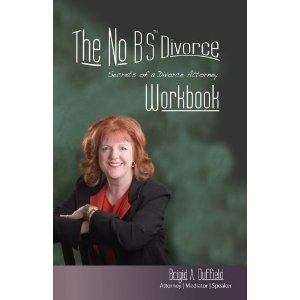WOW Word-Of-the-Week #419: Confront
August 15, 2012 by Susan Clarke
Confront – deal with (something unpleasant) head on.
Are you comfortable dealing with unpleasant issues? Have you ever ignored a conflict and had it blow out of proportion? Do you believe that confronting uncomfortable situations helps you grow as a person?
This is the second part of last week’s WOW on Brigid Duffield’s “10 Reasons Why Conflict Has Positive Outcomes.”
6. Conflict is an opportunity to open up communication on a difficult subject. Conflict and confrontation are natural and healthy components of any relationship. There is no right, wrong, good or bad in identifying or causing constructive conflict. Often the issue people think they are in conflict about is not the issue they really disagree.
7. Timing the Tactful confrontation about conflict strengthens relationships. Confronting conflict increases the openness and honesty and often the closeness in a relationship. Peace achieved through conflict avoidance is short lived and often dishonest. Setting a good stage for confronting conflict is key. In the No BS Divorce Book, I suggest that spouses in conflict figure out their “time tolerance” for each other, that is the amount of time they can actually speak with each other without the conversation breaking down. It might be 5 minutes, it might be 1 hour.
8. Managing conflict by dealing with it is more efficient than letting conflicts fester. Getting right to the disputed issue at hand resolves issues quicker and emotional time dwelling on things is shortened.
9. Managing conflicts appropriately helps build independence. Learning how to appropriately deal with conflict relieves you from the bondage of the person and issue. A key management tool is understanding where “neutral” ground is physically. People often pick the exactly wrong place to negotiate and in the wrong place, very little conflict resolution is likely.
10. Conflicts encourage people to grow. Conflicts are challenging and can lead to a new outlook on personal practices and processes. It is hard not to grow personally, spiritually, emotionally or mentally when dealing with conflict resolution.
This week’s focus is on confronting. How does it feel to confront and deal with issues? Do you need to open up communication on a difficult subject? If so, do you know what your “time tolerance” is?
Brigid’s book “The No BS Divorce” is available on Amazon
Reader Responses
“If I have something to say to my wife that could be confrontational, I usually do not do it in front of the kids. I keep it to ourselves behind closed doors. I have to problem letting her know how I feel, but there are times when I make my point she does not like to hear it. So, I make my point of emphasis and then drop it. That is when I know she did get the message. But that has helped us avoid messy arguments. While we have had the occasional argument, they are few and far between. My wife is a person who does not like change. I accept it much better than she. I will never forget the time we left my parents’ home in Lake Geneva, WI, for the last time. My parents had the house for upwards of 20 years and decided to sell it. As we walked out the door, my wife began crying, talking about how much she was going to miss it. I, on the other hand, was ready to move on. While I was certainly attached to the house, I knew that it was time to let it go. That is something difficult for her. At work, I have no problems confronting coworkers who are intransigent or unwilling to work with me. I let them know exactly where I stand, and if they don’t like it, I am not going to soften it. However, I don’t throw tantrums or raise my voice. I calmly state my case and leave well enough alone. Once I have made my point, that is it. It’s over. I have forgotten about it. But people know where I stand and respect it. And that is what it is all about. Great word, Susan. Take care.” “Warrior” Joe


